Compressed air is often called the fourth utility, powering everything from pneumatic tools to high-precision manufacturing. But unlike electricity or water, its efficiency depends on real-time monitoring and system optimisation. Over time, factors like air leaks, pressure drops, and fluctuating air demand can impact air compressor performance, leading to higher power consumption and unnecessary downtime.
Different industries require specific air quality, airflow rates, and pressure levels. What works for rotary screw air compressors in industrial settings will not meet the stringent dry air standards for food or pharmaceutical production. Compressed air flow meters provide critical insights by measuring pressure, monitoring output flow, and tracking real-time performance, ensuring your system delivers the right amount of air at optimal efficiency.
This is where flow monitoring becomes essential. While routine maintenance offers periodic checks, on-site air monitoring provides continuous data on airflow, compressor output, and system health. By leveraging tools like thermal mass flow and power meters, businesses can troubleshoot inefficiencies, reduce waste, and maximise system reliability, keeping compressed air cost effective, efficient, and ready for any demand.
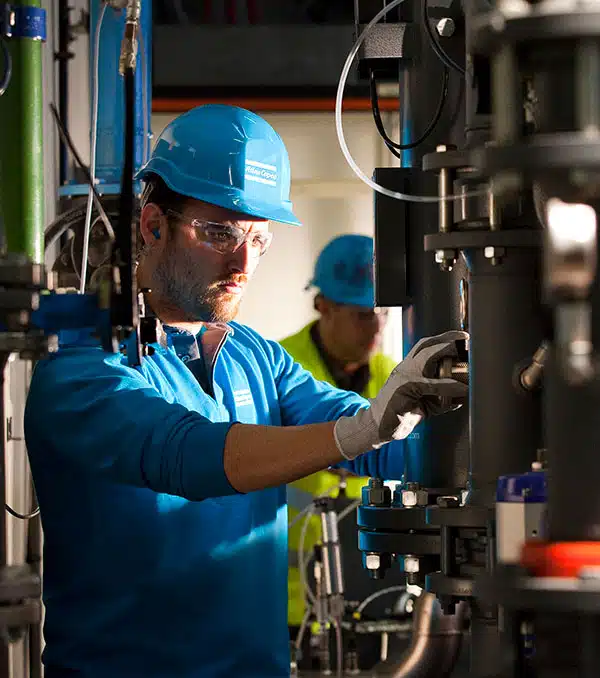
Why monitor air compressor flow?
There are a host of reasons why you might want to monitor air compressor air flow and other data.
- Energy efficiency: Compressors consume a significant proportion of the UK’s industrial energy usage. Monitors can be an energy management system that helps you ensure you are not using more than you need to.
- Quality checks: Monitors can help you precisely maintain the parameters of air quality you need, checking against a set of criteria. It will give you the peace of mind that you are getting exactly the quality of air you require.
- Operational optimisation: The data you collect allows you to consider your operating processes and organisation, giving you evidence that you can use for your operations management.
But underlining all of these is cost-effectiveness. When you have the power to fully understand your compressed air system and how you use it, you also have the power to keep your costs low and your productivity high.
What does a monitoring system include?
Compressed air monitoring systems will be different in every setting. How you use your compressor, and what you want from it, will determine what monitoring set-up is best for you. However, common monitoring includes:
- Flow meters: These will track the pressure and consumption of compressed air at various points in your system.
- Temperature sensors: Which track the temperature of equipment and air to ensure it remains within your required parameters.
- Dew point meters: Will track and measure the dew point of water, which can be essential if bacterial contamination is a concern.
- Discharge air sensors: Monitor the characteristics of air being released from the system.
- Energy consumption meters: Can give a real-time indication of energy use, so you can be sure the compressor is performing as you expect.
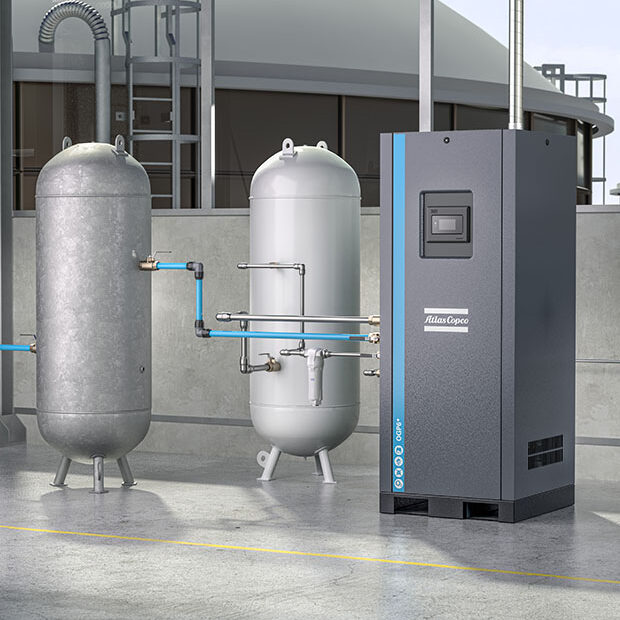
The benefits of monitoring
Flow monitoring helps reduce energy waste, prevent downtime, and improve efficiency. Real-time air compressor data ensures optimal performance and lower costs, whether managing a single compressor or a full system.
Lower Energy Costs
Compressed air is one of the most expensive utilities, with energy making up 70% of operational costs. Monitoring detects air leaks, pressure drops, and inefficient unload cycles, allowing you to adjust airflow rates and operating pressure in real time. Tracking kW per CFM ensures your compressor’s output meets demand efficiently.
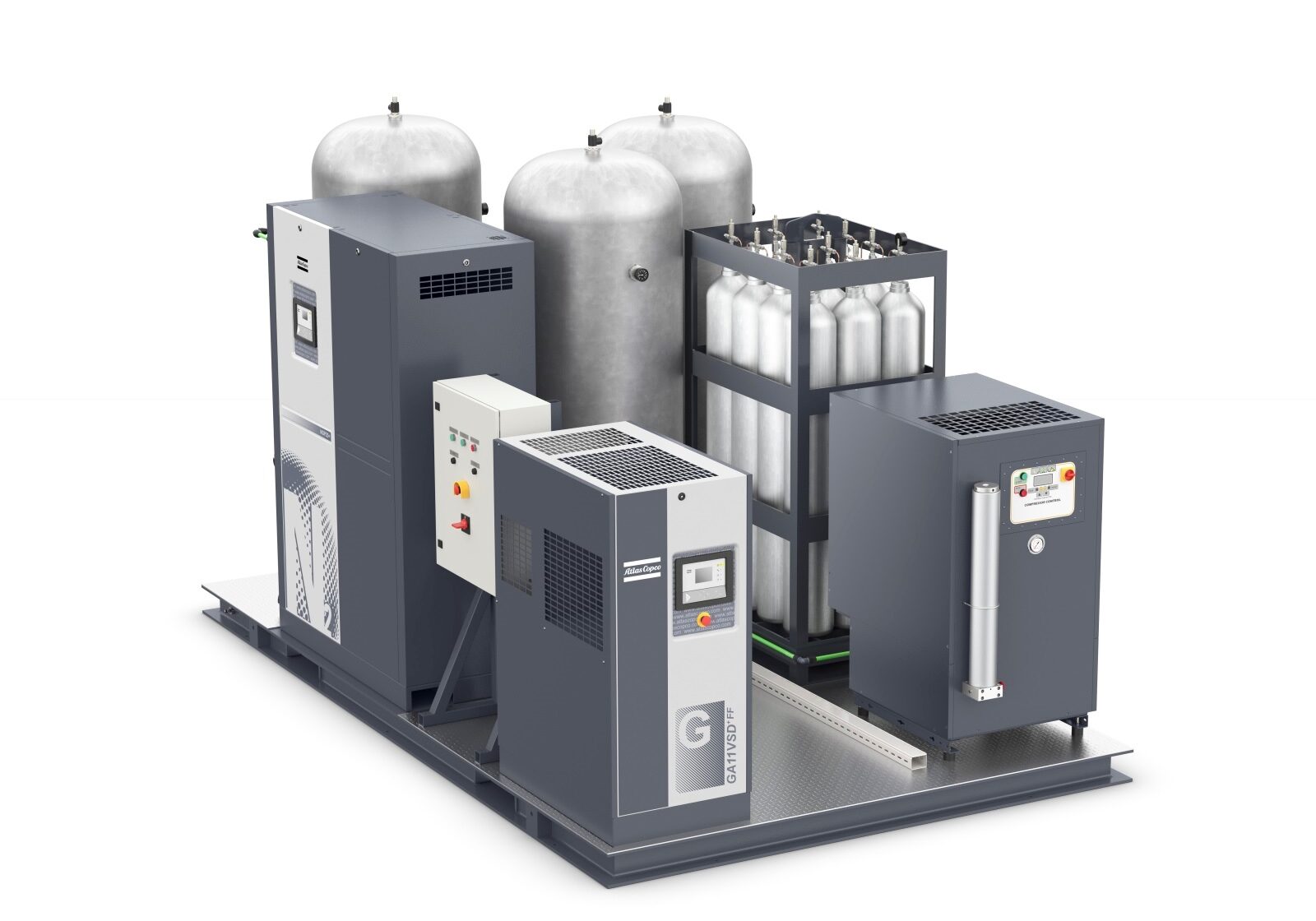
Ensure Air Quality and Prevent Downtime
Industries like food, pharmaceuticals, and electronics require dry, contaminant-free air. Monitoring dew point, water vapour, and PSI fluctuations ensures compliance with ISO 8573-1 while preventing unexpected failures. Early detection of pressure drops or excess power consumption helps avoid breakdowns and costly repairs.
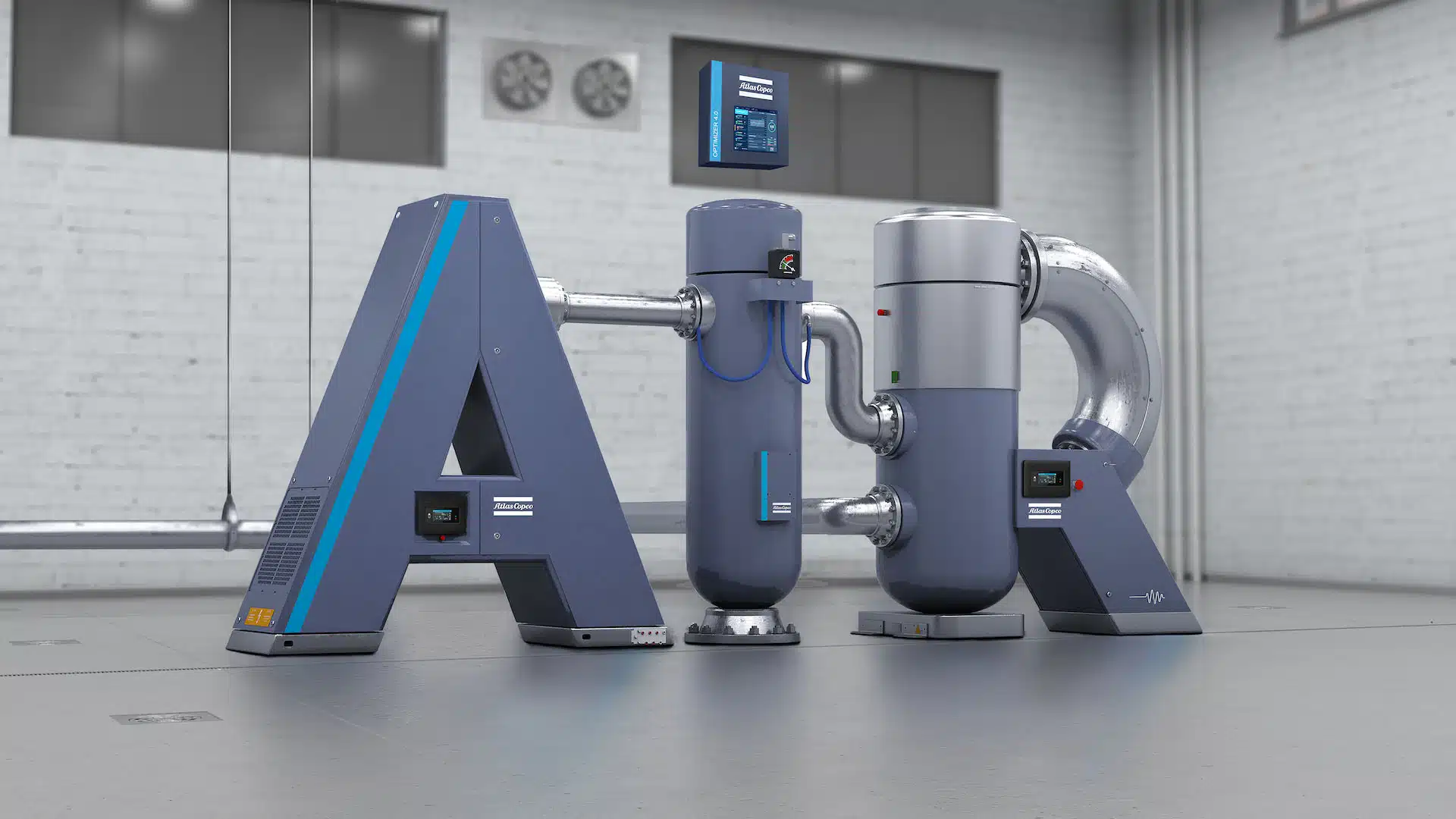
Remote Access and System Optimisation
With a cloud-based dashboard, you can track airflow rates, PSI, and power usage remotely. Automated notifications alert you to system inefficiencies, preventing downtime and improving overall compressor performance.
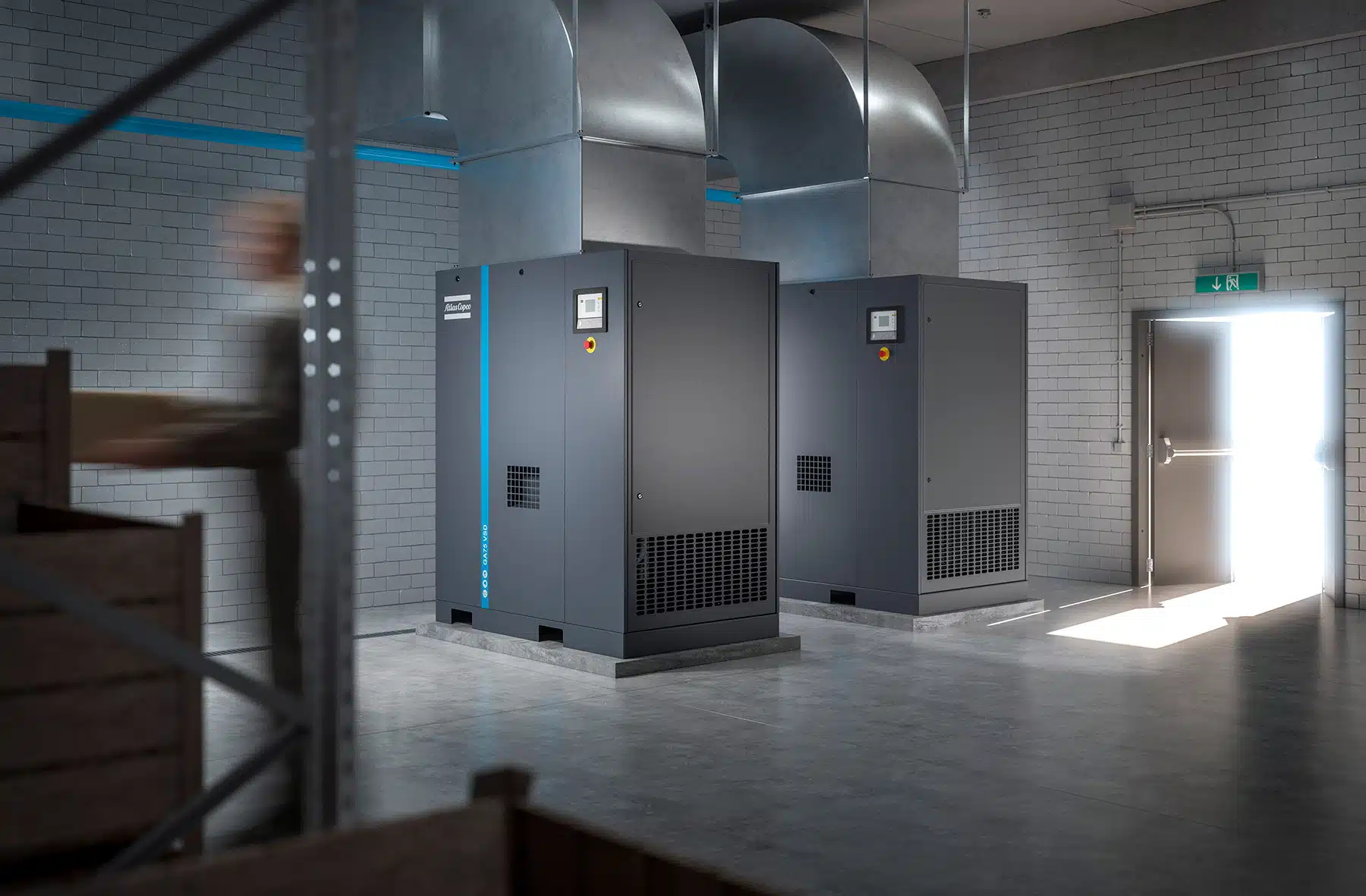
Right-Size Your Compressor and Improve Efficiency
Monitoring reveals whether your air compressor is oversized or undersized, which can affect efficiency. Understanding air compressor measurements like PSI, CFM output, and kW consumption helps optimise compressor sizing and system performance.
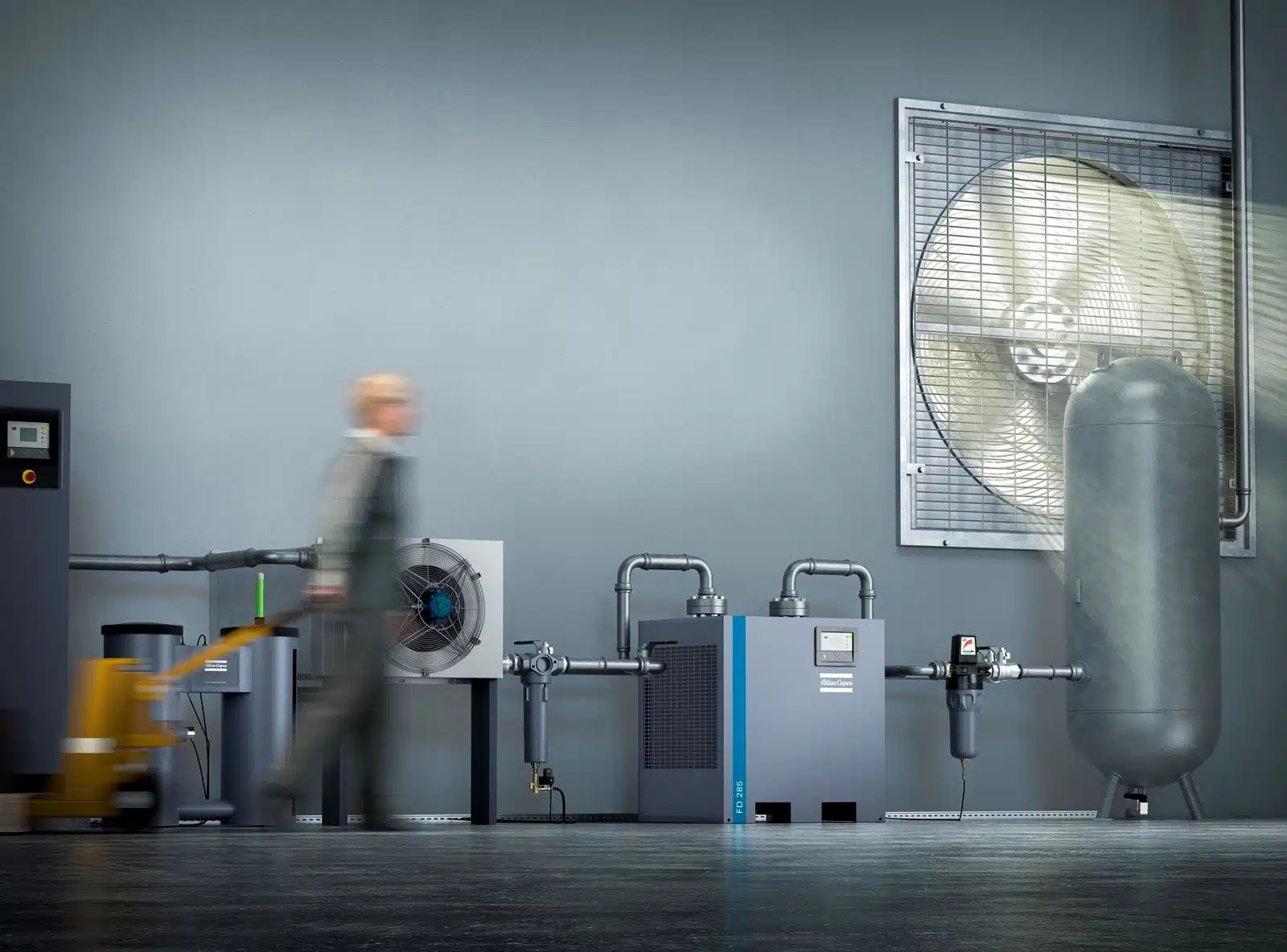
The Bottom Line
Flow monitoring reduces costs, enhances efficiency, and prevents downtime. Investing in real-time monitoring ensures your compressed air system runs at peak performance.
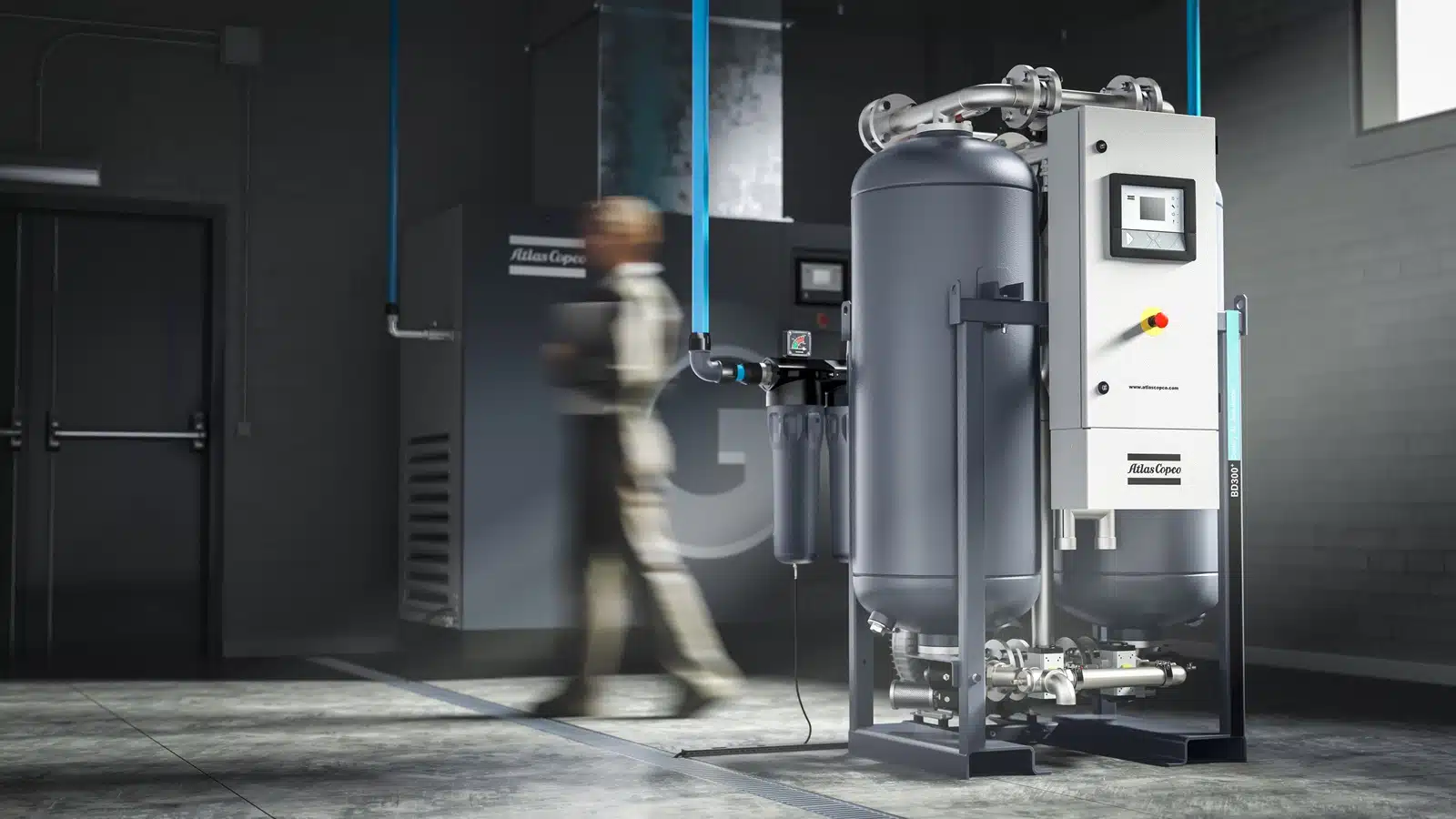
Installing monitoring on your air compressor system
Most modern compressors will come with a range of monitoring features. However, monitoring systems will include your complete system, right up to the last tool that it powers.
As compressed air experts, we can advise on what level and type of monitoring solution is right for you, considering the equipment you have, your processes, and what you need to get from your system. Whether it’s simply monitoring flow, or providing a suite of data, we can provide and install the equipment that you need.
Plus, afterwards, we can provide training, advice, and guidance on how to best use your flow monitoring, showing you what to look for, and what actions you can take to get the best out of your system.
Every business needs quality control on its products, and when compressed air is integral to so many production processes, it makes sense to have quality control for your air as well.
Contact us today, and we can show you the difference that flow monitoring can make.
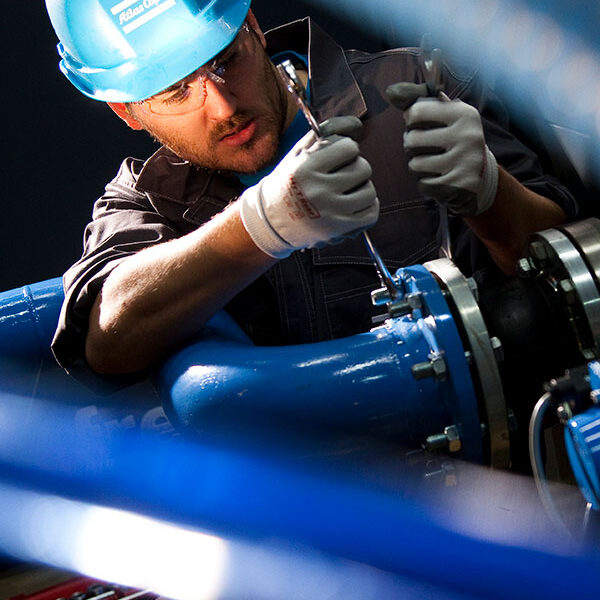
FAQ
How does remote monitoring improve the reliability of my compressed air system?
Remote monitoring lets you track critical data points within the air compressor, such as pressure, volumetric flow, and performance. This continuous data analysis helps ensure your compressed air system operates efficiently and reliably, identifying potential issues before they become costly. It also provides peace of mind by allowing you to monitor your system from anywhere, ensuring the reliability of your air equipment.
Can a monitoring system be added to an existing compressed air system?
Yes. A monitoring system can be installed on your existing system to provide additional data and improve performance. Whether you use a rotary screw compressor or other air equipment, monitoring can track parameters like mass flow, gas flow, and free air delivery. These systems help ensure your compressed air system is operating optimally without the need for a complete system overhaul.
How do I select the right air compressor for my needs?
Selecting the right air compressor depends on your specific operational requirements. Factors like the volume of air used, the compressor’s operating environment, and your system’s demand for additional air capacity all play a role. Consulting with an air compressor manufacturer can help you choose a compressor that delivers the best air quality and performance for your particular needs.


